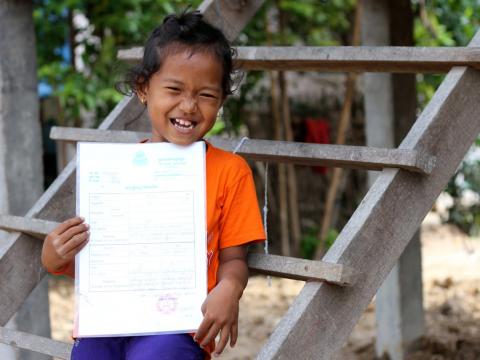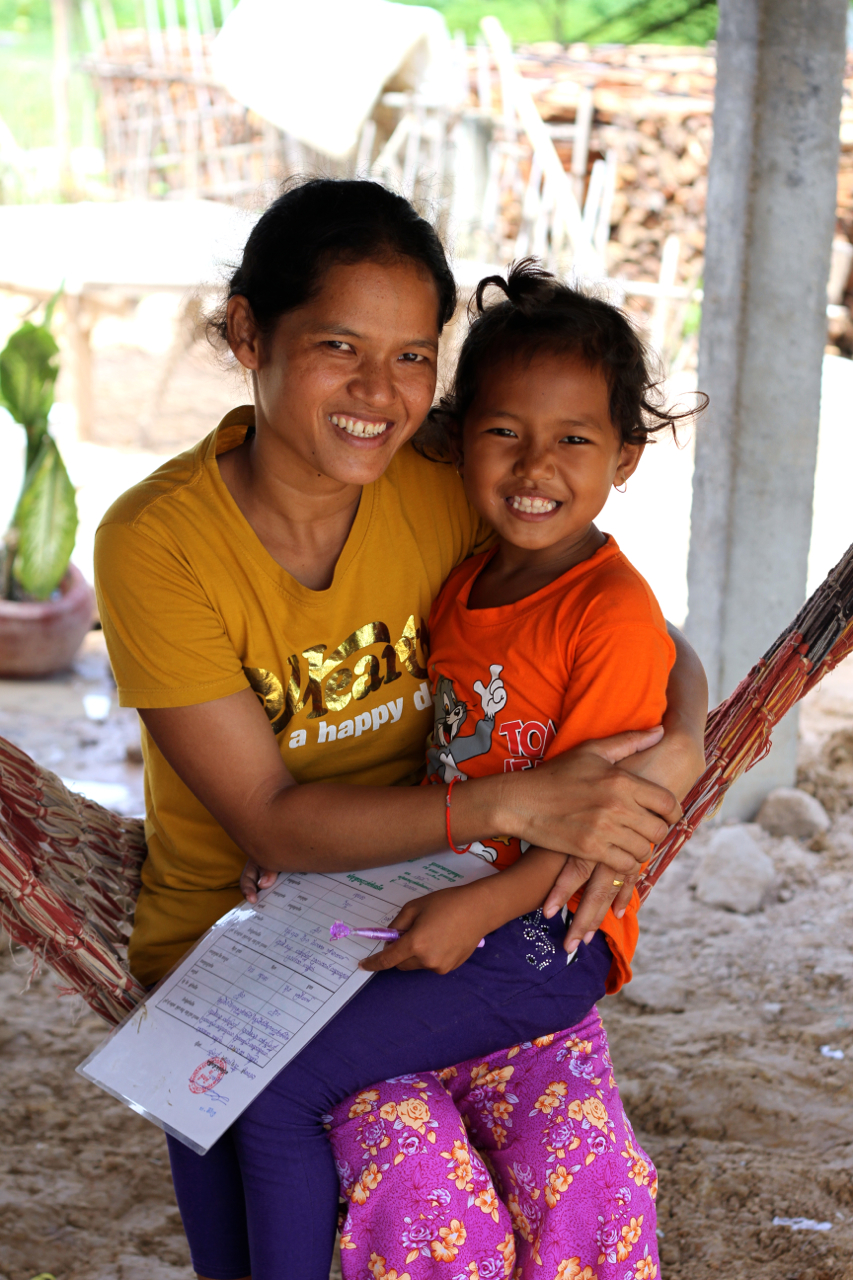Birth of a Nation

School principals want them. Employers ask for them. And marriage registrars demand them. Birth certificates are so important for Cambodians that they call them ‘vital records’.
Yet thousands of births are unregistered, with children facing obstacles in life as a result. In response, World Vision works with regional legislators and local volunteers to encourage parents to record births lawfully.
Megaphone in hand, one of a handful of youths walking along the village road bellows: “Get birth certificates for your children!”
Continuing, the World Vision volunteer hollers: “You’ll need them for school, when they get married and when they’re looking for jobs!”
Sitting next to a pile of clothes in their garment factory, the female workers catch the mention of school, marriage and work and start chatting about birth certificates, with five of the twenty admitting they didn’t register their children’s births.
World Vision encourages all parents and guardians to apply for birth certificates or an alternative document to certify birth. To raise awareness of the issue among villagers, the organisation works with young volunteers and the local authorities.
One of the factory workers, Pov, remembers her concerns three years before: “I wanted to send my daughter to school and for her to join World Vision’s sponsorship programme. I was worried about her future. When she grows up, wants a job and gets married, she’ll need a birth certificate.”
Pov explains: “But when I registered Vannak [her daughter] for school, the principal asked me for her documents.”
After rushing to the village chief’s house, the mother asked how she could apply for a birth certificate for her daughter, who was then four years old, but was told she was too late.
Under Cambodian law, parents must register a birth within 30 days of a child being born, after which a birth certificate will be issued. If parents miss the deadline, they can apply for an alternative document certifying birth.
Referring to such certification as ‘vital records’, many Cambodians confuse the two documents and often believe they are one and the same.
A year later, Pov received her daughter’s document certifying birth, with the 31-year-old conceding: “We knew about the law, but we didn’t care because we didn’t know so many things require birth certificates.”
“It was very cheap too,” says Pov, who paid 5,000 Riels (1.25 US dollars) to certify the birth of her now seven-year-old daughter. This counters the belief of some parents who, according to youth volunteer Theary, say they cannot afford birth certificates for their children.
Wearing an orange ‘Tom and Jerry’ top and purple trousers, Vannak clutches her birth certificate, knowing it is normally stashed along with other crucial documents, such as the household book, land titles, marriage certificate and ID cards, in a designated plastic bag.
Vannak wants to be a teacher, although she expresses her dream more simply, saying: “I want to use a marker pen.”
The village’s deputy chief, Sarika, explains that although their district has a population of 200,000, only around one thousand birth certificates are issued each year. He says: “Villagers apply for birth certificates when they want to enrol their children in school.”
He adds, “We’ve recently been cooperating with local health workers for them to encourage parents to register for birth certificates when their children are born or when they bring them for vaccinations.”
Birth registration in Cambodia remains a challenging issue, with only half of children under five having birth certificates according to official figures compiled in 2010.

